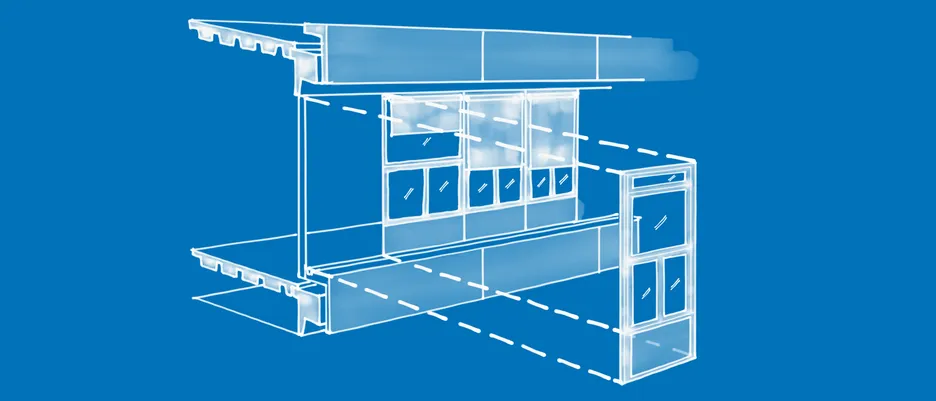
Leasing Fassade
Demonstrator Project
The Façade Leasing project explores an innovative business model for circular, performance-based contracting of energy-efficient building envelopes. Façade Leasing is a systemic, multi-disciplinary approach to address the slow rate of deep building energy renovations across Europe. An academic and industry partnership is both studying and demonstrating the technology, business, finances, building regulation, and (supply-chain) management perspectives, all of which need to be accurately aligned for this model of Circular Economy transition to succeed.
Specific problem
The construction boom that took place across Europe in the decades of the 1950’s to the 1970’s presents the current European construction sector with a unique and daunting challenge: On the one hand, buildings from this period - which can account for over 50% of the building stock in certain real estate sectors and regions such as Dutch university buildings - combine a still functional structural integrity with a rapidly declining energetic performance, often negatively affecting the performance of the building’s users/owners. This means buildings which can still be technically used for decades to come are often operating well below the desired energy performance standards. A large portion of these buildings must undergo a deep energy renovation (i.e. one reaching energy savings of 60% to 90%) within the coming ten to twenty years if we are to meet climate adaptation goals set for the years 2020 and 2050. On the other hand, investment on building energy renovation projects is still far below the required volume, with less than 1% of the building stock being renovated every year (well below the 3% target). Furthermore, many of these retrofitting projects focus on minimizing initial investment costs - rather than optimizing energy consumption - resulting in superficial improvements and in a short-sighted allocation of financial and material resources.
General solution
The Façade Leasing project brings together a multi-disciplinary team of experts from academy and industry in order to provide a systemic solution to the problem presented above. The project recognizes this challenge as one that cannot be solved through technology alone, as technology to renovate buildings to near-Zero energy standards has been available for years. Instead, Façade Leasing proposes the redistribution of incentives among construction industry stakeholders as a way to facilitate accelerated and strategic investment in deep energy renovation projects. This while creating new sources of shared value and long-term collaboration for all parties involved in the building’s life-cycle operation.
With new constructions accounting for only 18% of the Dutch façade industry’s yearly output – and with similar trends found throughout the EU – it is natural for our innovation to focus on the renovation market in terms of both market volume and potential CO2 mitigation. However, Façade Leasing also addresses the problem of underinvestment on high-performance envelopes for new buildings. Facades represent, on average, between 20% and 30% of a new building’s construction cost. This percentage becomes even higher when we consider emerging façade-integrated technologies such as decentralised ventilation and in-glass photovoltaic panels, which effectively replace more traditional, centralised building services.
Similar to the case of renovations, the high relative cost of a new building façade, under a culture of lowest initial investment, often leads to poor technical performance, which consequently has negative impact on operating costs, users’ productivity and/or satisfaction, eventually negatively affecting the overall performance of the organisation. The financial and organisational incentives proposed by this innovation would also positively support better decision-making for energy-efficient façade technologies by reducing the initial investment burden of traditional contracting models.